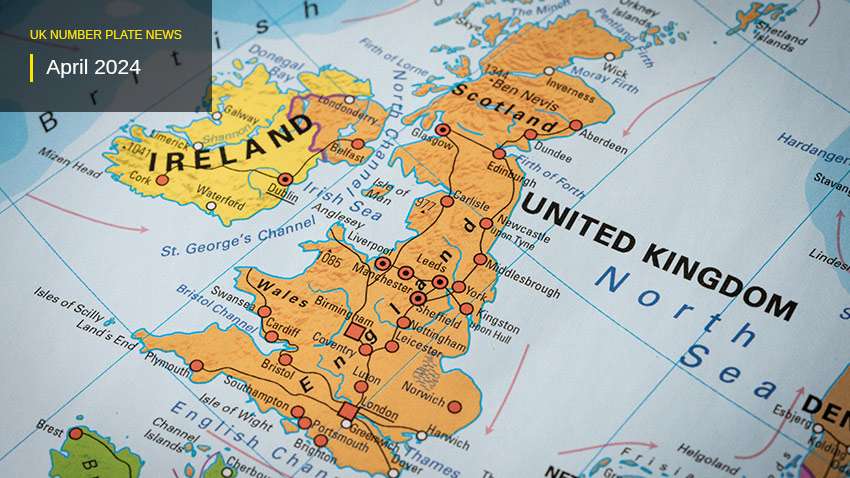
Welcome to April's UK number plates news roundup.
If you come across a relevant item that you think we should include, whether it be alarming, surprising, amusing or just plain weird, please let us know at [email protected]
Scaremongering tabloids and misleading, clickbait number plate 'news'
We see it time after time: tabloid newspapers and websites have fallen into the habit of transforming routine occurrences into ominous headlines warning of dire consequences.
The most recent instance was the flurry of headlines that included the following:
- The new car number plate rules could see you hit with £1,000 fine and failed MOT
- DVLA issues urgent number plate warning as drivers could face £1,000 fine before March changes
- Number plate mistakes which could result in £1,000 fine - as huge change kicks in today
- Number plate changes to be unveiled within weeks as British drivers admit to not knowing important rules
Sounds scary doesn't it? Was this an announcement of new legislation, or new rules pertaining to the display of car number plates? No, the news that had the tabloids in a panic turned out to be the routine, regular appearance of the new registration number series. This happens twice a year, every year. In 2024, the two new series are the 24 plates and the (coming soon) 74 plates.
The fine mentioned in the headlines is the standard penalty for displaying plates that don't meet the regulations. The fine is not new, and neither are the regulations that plates must comply with.
It's all rather silly really.
Lancaster motorist fined for breaking number plate rules
Of course, just because tabloids interpret most things as evidence that the sky is falling doesn't mean that people don't have number plate problems.
We did consider giving this story a clickbait title like 'Number plate criminal brought to justice for catalogue of heinous offences', but we weren't 100% sure how to spell 'heinous'.
Police stopped a driver on the M6 at Lancaster after they spotted that his car's number plates were tinted. Regulations, as all number plate suppliers should know, must comply with the colour and reflectivity specifications set out in the British Standard for number plates (2021 BSAU145e) and the plate regulations. Additional colours, textures, emblems etc are explicitly disallowed.
The rules also specify the typeface that must be used, as well as the size and spacing of the numbers and letters on the plate. The fact that the apprehended driver had also altered the layout of the characters to make them spell his name just made it all the more inevitable that he would eventually run into problems with the police.
The only surprise about the £100 fine issued to him was that he got off so lightly. Maximum penalties can include a much larger fine, MOT failure and confiscation of the registration number.
Number plate crime gets sillier
So long as drivers face restrictions such as speed limits and low/zero emission zones, there will be people who think the rules imposed to preserve lives and the environment shouldn't apply to them. As we have seen many times, those people sometimes use stolen, cloned or altered number plates to help them evade enforcement and penalties.
Police sometimes run public information campaigns to highlight the issue, and they often give out free security kits that enable drivers to affix their plates in ways that make them very difficult for would-be thieves to remove. At the time of writing, police in Folkestone, Kent are running just such a campaign and giving out free number plate security fixing kits from the police station.
While the police do what they can to address the problem, the fine-dodgers come up with more ways to defeat cameras and patrols. One trick that has recently been reported is the use of artificial magnetic leaves that stick to the number plate and cover characters. The leaves are held in place by an electromagnet fitted behind the plate. The magnet can be deactivated by a remote control fob, allowing the fake leaf to fall from the plate in the event that the driver should be pulled over by police.
Not only does the driver presumably have to purchase a replacement for each fallen leaf (unless they go back to hunt though countless real leaves on the road, searching for the fake), but even a cursory inspection of the car by police would reveal the electromagnet installed behind the plate.
It all seems pretty daft and a lot of trouble to go to. We really don't recommend the idea.
